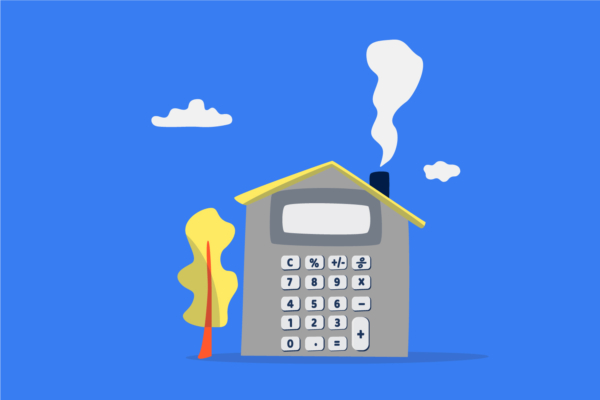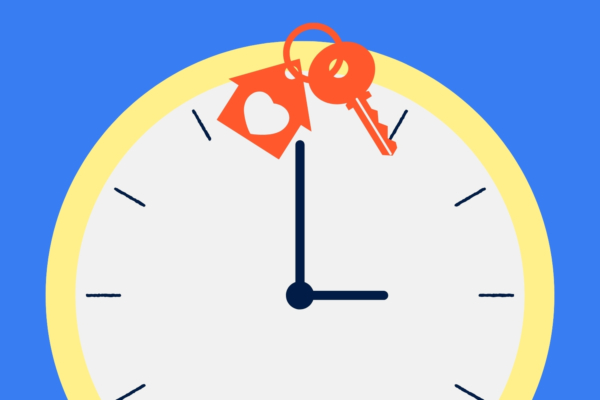
How Much are Closing Costs, Anyway?

Closing costs are an unavoidable part of buying a home. But for many, closing costs can come as an unpleasant surprise.
After a long house-hunting process and putting down a hefty down payment, closing costs can leave your wallet hurting, especially if you didn’t know what to expect going in. Understanding exactly what closing costs are— and how much you can expect to pay— can help you better mentally and financially prepare for what will happen on closing day.
What are closing costs?
Closing costs are the name for the fees paid to various parties when you finalize the paperwork for a mortgage and transfer a property title from one owner to another. The fees cover several things, including the cost of processing and finalizing your home loan, appraisal fees, taxes, title searches, and more.
The buyer covers most of the closing costs. ”
Typically, the buyer covers most of the closing costs. However, the seller is usually responsible for covering a few expenses like the commission for the real estate agents.
Closing Costs vs. Down Payment
People often assume that their down payment covers closing costs. Though you may make your down payment at closing, these are two completely different payments.
Your down payment is paid to the seller of the house; closing costs are paid to the lender, real estate attorney, title company, and other third parties involved in your real estate transaction.
What you put down on the house goes towards the overall purchase price. For example, if you put $60,000 down on a $300,000 home, you’ll only need to finance $240,000. Closing costs, on the other hand, are not included in the purchase price of the home. They are an additional amount that must be paid in full upfront.
How to Calculate Closing Costs
Closing costs in Texas are usually a percentage of the purchase price of the home— typically between 2% and 5%.
For example, if you purchase a $300,000 home, you can expect to pay anywhere between $6,000 and $15,000 in closing costs.
Why can closing costs vary so much? Aside from your home’s purchase price, closing costs are dependent on factors like:
- Your location
- Your lender
- The type of loan you take out
- Your credit score and down payment amount
To get a more exact estimate of what your closing costs will be, contact a local mortgage lender.
Can closing costs be included in the loan?
Closing costs can add up quickly, and simply rolling them into your mortgage and paying it off monthly may sound like a better option.
Rolling closing costs into your home mortgage may be possible, depending on your specific loan and lender. Some loan programs allow it, while others don’t.
Closing costs can add up quickly.”
The important thing to remember is that adding your closing costs to your mortgage will increase your total loan amount— which also changes metrics that lenders look at like your debt-to-income ratio (DTI) and your loan-to-value ratio (LTV).
You’ll also be paying interest on the additional amount that you roll into your mortgage. Over the years, this can amount to thousands of dollars that you otherwise wouldn’t have to pay if you wrote a check at closing.
If you can’t roll your closing costs into your mortgage, look for other ways to save on closing costs like negotiating with the seller or lender.
What’s Included in Closing Costs
Closing cost is a broad term that covers a bundle of individual fees. What’s in your closing costs may not include what’s listed here or may include additional charges not mentioned.
Appraisal Fee
Before a lender lends you money, they will want to ensure that the property is worth at least the amount that they are lending. They will hire an appraiser to assess the value of the house.
Courier and Recording Fee
In a real estate transaction, documents and copies of documents will need to be sent to the various parties involved. The courier fee covers these costs.
There may also be additional fees for recording the property transfer with your county.
Credit Report Fee
During the mortgage approval process, your lender will pull your credit report, which often costs a small fee.
Discount Points
Should you decide to purchase discount points, this cost will be added to your overall closing costs. Discount points, also known simply as points or mortgage points, are additional fees paid upfront in exchange for a lower interest rate.
Escrow Fee
Also known as a closing fee, this fee is paid to a third party like an escrow company, title company, or real estate attorney who oversees the closing process.
Escrow Deposit
As a property owner, you’ll be responsible for property taxes and homeowners insurance. Your lender wants to ensure that these get paid, so they’ll set up an account called an escrow account. Each month, part of your monthly loan payment will include taxes and insurance, which will go into the escrow account for safekeeping until it’s time to pay those bills.
An escrow deposit is an upfront payment to this account so you always have a small cushion to fall back on should you fall behind on these payments.
Flood Determination Fee
Houses that lie in a flood zone must purchase additional flood insurance. A flood determination fee is paid to a certified flood inspector to determine whether or not the property sits in an area prone to flooding.
Homeowners Association Transfer Fee
If your property is in an area with an HOA, you might have to pay an HOA transfer fee to join.
Homeowners Insurance
Your lender may require that you pay for several months to a year’s worth of homeowners insurance premiums upfront.
Lender’s Title Insurance
Lenders may require you to purchase a lender’s title insurance policy, which protects the lender against title issues that may arise with your property.
Owner’s Title Insurance
If you want to protect yourself against title issues with your property, you would purchase a separate owner’s title insurance, which is separate from the lender’s title insurance policy.
Origination, Underwriting, and Application Fees
These costs are levied by the lender for processing, approving, and providing the loan.
Prepaid Daily Interest Charges
Interest will accrue daily from the day you close until you make your first mortgage payment. This interest will be paid upfront at closing.
And here’s a pro tip— if you close towards the end of the month, you can cut this cost significantly!
Private Mortgage Insurance (PMI)
If you put down less than 20% on your home, your lender will likely require private mortgage insurance and might want to see the first month’s premium at closing.
Property Tax
If any property taxes are due within 60 days of closing, you might be required to pay those at closing.
Real Estate Commissions
Real estate agents earn their money via commission paid at closing. Typically, the seller covers this cost, but it can be negotiated.
Survey Fee
A survey fee covers the services of a professional land surveyor, which is used to confirm a property’s boundaries.
Title Search Fee
Before the title is transferred to your name, your title company will perform a search of public records to determine if there are any ownership disputes, liens, or other encumbrances. The title search fee pays for this service.
Be Prepared for Closing Costs
No one wants to be caught off guard at closing. By understanding how much closing costs are and what’s included in them, you can be confident at closing with your cashier’s check in hand. Though paying these fees is no one’s definition of fun, they are necessary. And, at the end of the day, you’ll have a new place to call home!
Looking for a mortgage lender?
Learn more about Amplify’s mortgage loans, and apply today!



